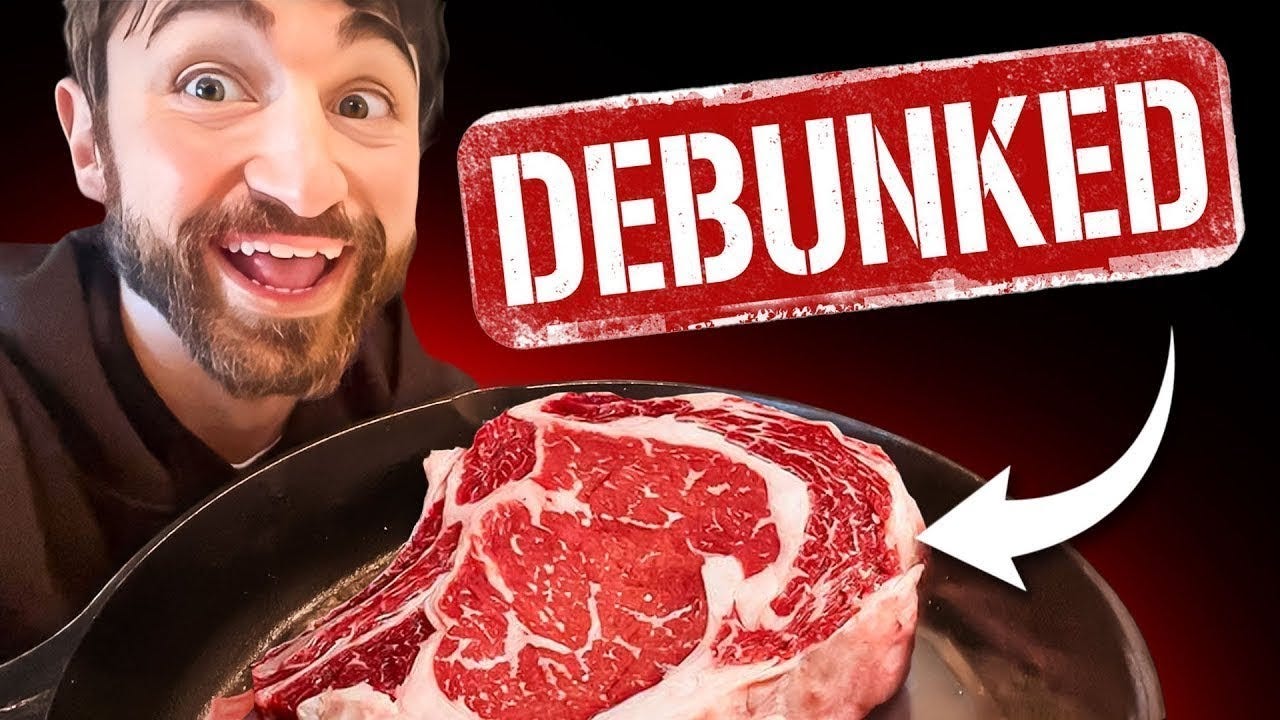8 carnivore diet myths debunked by researcher

The debate between meat enthusiasts and plant-based food advocates has been ongoing for years, with both sides touting the benefits of their respective diets. One meal plan that has gained popularity among meat enthusiasts is the carnivore diet, which consists of consuming only animal products such as meat, dairy, and eggs. However, this diet has been met with skepticism and criticism from those who embrace plant-based foods like vegetables, fruits, grains, and legumes.
Recently, Harvard medical student and researcher Nick Norwitz released a video debunking eight myths surrounding the carnivore diet. Norwitz, who has a PhD in metabolic health and is finishing his medical degree, has always been passionate about sharing his joy and interest in science. In his video, he addresses common misconceptions about the carnivore diet and provides scientific evidence to support his claims.
One of the myths Norwitz addresses is the belief that there is no evidence for the carnivore diet. He points to several research studies that have shown the benefits of the diet, including a Harvard study of over 2,000 participants that found improvements in overall health and well-being. Norwitz also conducted his own research showing that the diet can help alleviate inflammatory bowel disease and restrictive eating disorders.
Another myth Norwitz debunks is the idea that the carnivore diet increases the risk of scurvy due to a vitamin C deficiency. He explains that while it may be challenging to meet the recommended daily dose of vitamin C on a meat-only diet, it is still possible to get enough vitamin C from fresh, grass-fed beef. In his own six-month carnivore diet experiment, Norwitz found that his vitamin C levels were normal, contradicting the belief that the diet leads to scurvy.
Norwitz also addresses concerns about constipation and athletic performance on the carnivore diet. He explains that while the diet may lead to a decrease in fecal mass due to the absorption of nutrients in the small intestine, it does not necessarily cause constipation. Additionally, he cites a study of Iron Man athletes that debunks the idea that high carbohydrate intake is necessary for peak athletic performance.
Furthermore, Norwitz refutes claims that the carnivore diet is harmful to heart health and the brain. He acknowledges that a diet high in red meat and saturated fat can increase LDL cholesterol, a risk factor for heart disease, but emphasizes that individual responses to the diet vary. He also points out that recent research linking red meat intake to dementia is misleading and overlooks important factors such as lifestyle habits and dietary quality.
In conclusion, Norwitz emphasizes that while the carnivore diet may be beneficial for some people, it is not a one-size-fits-all solution. He encourages individuals to consider their own health needs and biomarkers when deciding on a dietary plan. Ultimately, he believes that the carnivore diet is misunderstood and unfairly scapegoated, and that further scientific exploration is needed to fully understand its potential benefits and risks.




